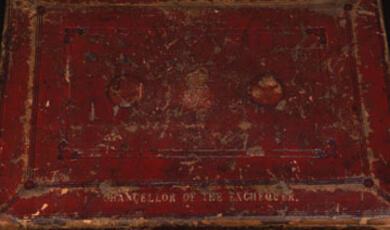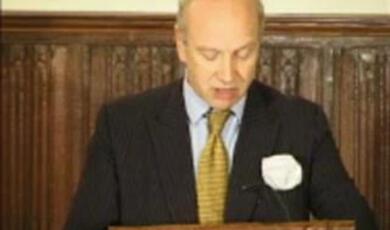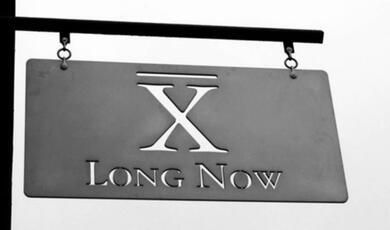Ethics in finance
Share
- Details
- Text
- Audio
- Downloads
- Extra Reading
At the heart of the recent spate of financial scandals from Enron to Parmalat lies a yawning deficit in the ethical behaviour of bankers - so say some. Others argue that there is no role for ethics in finance beyond the requirements of the law. This lecture asks, which view is right? If ethics are important, is there a question bankers could ask themselves, before they consider a transaction, in order to judge the appropriateness of their behaviour?
Download Text
Finance & Ethics: Two couple steps to easier collaboration
Professor Avinash D Persaud
Is finance exceptional?
Individuals make ethical decisions about many things: which job they take, what coffee they buy, where they go on holiday; but most of us hang up our morals outside the door before entering the financial world.
We do so whether we are clients or employees or most financial institutions. As a community, we have convinced ourselves that finance is an exception, it lies above (or should that be below?) such mundane matters as morals.
Where some individuals do consider the ethics of their financial decisions and the financial company they keep, the silent majority looks askance, questions their good sense - and the size of their sandals. Remember that one of Britain’s first ethical investment funds, the Friends Provident fund, was nick-named “Brazil Fund” by those hard nosed men of the city, even though it had little Brazil exposure, because to them, it was nuts…
Too many city men and women, but by no means all, consider ethics as something to ponder over, with a cup of tea and life’s fringe activities - not something to consider in the conduct of their business, jobs and career. The only time I remember one particular boss of mine grapple with a moral issue, was when he was trying to decide whether we should have a Christmas party in a year that the company had dismissed some people. He decided we should still do it, but make it less expensive and more tacky.
But maybe we are picking on finance when many businesses can be tarred with the same brush. It would be a rude shock for many business people to see the common presence of ethical issues at your typical medical or civil engineering school. When she heard I was doing this lecture, my mother, the novelist Lakshmi Persaud, alerted me to an amusing and interesting article which tells the tale of a US Professor of business asking his class what kind of things would be unethical for an employer to do to their staff. There was a long perplexed pause, and then eventually someone piped up that they supposed you couldn’t kill your subordinates.
The idea that finance is an exception is of course a self-serving view for those who profit from unethical behaviour, but these people are free-riding on the good behaviour of others. Finance, more than most industries, depends on a generally high level of ethics. The financial industry cannot afford for its employees to hang up their morals on the front door before they step inside.
Here is one of the reasons why: Finance depends on trust
When you buy a bad apple at Sainsbury’s three times in a row, you stop buying apples there, and if that happens to enough people Sainsbury soon gets the message. (Well one assumes so anyway.)
There are two features of retail markets, especially in food and drink, that make them examples of markets that function well. First it is easy and quick to assess quality, second there is frequent repeat business which reveals consumers judgements on quality. In such a market, suppliers have very strong incentives to keep standards high. They cannot rest on their laurels as Sainsbury’s, Marks & Spencers, Simpsons and many others have found.
Major financial decisions are not made weekly, they are made infrequently. Most people make a decision on their pension only when they join the pension scheme and when they are preparing to leave. The time it takes you to realise you have made a mistake with your pension, mortgage or car loan it is often too late to do much about it. This makes it harder for the financial markets to roots out bad apples than other industries.
This problem presents certain solutions. Like improving disclosure of information to try to make it easier for people to make the right decision in the first place, or the development of products and rules that allow people to chop and change their financial suppliers easier, be it their banks, their insurers and mortgage providers or pension advisors. Disclosure and flexibility requirements are the main weapons of our financial regulators.
However, these solutions are about trying to reduce the problem, not tackle it head-on, and the distinction is important because it may not be very reducible.
When past performance is no guide to the future, it is not clear that having standards on how past financial performance is disclosed is going to help make drastically better decisions. It may well be that inherently, financial decisions that involve ordinary folk investing for the future or borrowing against their future, are always going to be unclear for a long while whether the right decision, in hindsight, was taken or not. By which time the person or institution who sells you the product may be nowhere to be found. The degree of uncertainty and time means that the bad players can survive for long, undermining the good. Indeed “Greshamites” will need no prompting in thinking that if there is little distinction between the good and bad advisors, except in the long run, Gresham ’s Law will apply, and the bad financial agents will drive out the good. Perhaps this already happens.
Transparency is generally good but it is not the answer to every ailment and can sometimes be inappropriate. In the case of disclosing past returns, it may give a misleading impression, in other cases, disclosure can be harmful.
It is important to make sure that disclosure requirements do not destroy the incentives to find things out yourself or through agencies working exclusively for you. Imagine there are no disclosure requirements - up would spring a market where people would get paid for finding things out for buyers, and in the process of their search they will discover things that even the seller may not have known. Structural surveyors carried out for home buyers often find things that vendors don’t know. If we require complete disclosure by sellers, there will be few incentives for information markets to exist, and while we may end up knowing what the seller knows, without a market for information we may all end up knowing less.
Finance depends on trust and in financial transactions trust can not be achieved by mere laws, rules and information alone.
Implications and getting it wrong
If trust breaks down, markets break down. If financial markets develop a reputation for being full of rogue traders, then individuals will begin to disengage from it, reducing their capacity to find investments for savers and thereby reducing the growth of the economy.
A market known for its strong ethic will be more inclusive and larger than otherwise, which will help it to be more liquid and to offer more and cheaper financial options for borrowers, savers, investors and traders. The breakdown of trust in the financial markets after the dot com bezzle, was part of the reason, though perhaps not the main reason, why there has been such a pitiful take-up in retail savings instruments. Things have reached a poor state when your average saver would rather trust and estate agents with her savings than a financial broker.
Financial market participants often espouse economic freedom at every turn, and often with good reason, but successful financial exchanges today are more distinguished by trust in their regulation than the degree of their freedom. In this lecture series we have often criticised the state of regulation, but only because it plays such a vital role today. Good regulation is a competitive advantage.
Our forefathers knew this, which is why before credible national institutions grew up, the building blocks of markets were the self-regulating guilds, like Mercers, Goldsmiths and Haberdashers, membership of which was supposed to be a stamp of acceptable behaviour, a stamp made brighter by their sizeable charitable works.
I am not here proposing self-regulation - it has merits and its short-comings, I am merely pointing out that financiers have never believed in a wild west and, not always successfully, they were aware of the need to set ethical standards, several hundred years ago.
If we accept that trust is important and it cannot be built by laws alone, how easy is it to have agreements and moral codes that go beyond the law, especially when the law is often our attempt to codify what we can agree about ethical behaviour.
Ethics and the Law
Slavery, discrimination, environmental degradation and snake-oil salesmen are unethical, if not to all business students, but they are also illegal. The legislature may not always get it right or in time, but they often try to enshrine the current consensus of morality and ethics into the laws of the day. Some would say that the banning of fox hunting is an example of a consensus oral opinion being turned into law.
Where legal yet unethical behaviour is uncovered, as in some recent corporate scandals, the law adapts and tries to outlaw it. In which case, why should we expect more from firms than legal behaviour? What happened at Enron and Worldcom, two recent large corporate scandals, released a storm of moral indignation, but much of what happened was not just unethical it was also illegal using the laws of the time and not just the subsequent legal reaction.
But I believe there are and will always be distinctions between law and ethics and not just in the practice of finance. One of the uplifting stories of humanity is how many through history have sacrificed their lives, families and careers by taking moral decisions against their narrow personal interests or against the orders of their government. But there is a wide plurality or moral beliefs. Whether you manufacture or sell guns are moral issues for some people, freedom to do so is an issue for others and these are not really, or not yet, legal issues.
The law may codify a basic level of morality where there is a strong consensus, like cruelty to animals and child labour, but the lowest common denominator will leave most with a set or moral values which are not codified. There are even times when laws don’t just act too mildly in favour of someone’s morality, but they act against morality such as pre-civil rights in the United States, in Germany in the 1940’s and in Myanmar today.
An ethical framework
I would like to present an ethical guide for finance professionals with three objectives in mind. The first is to lead to higher ethical standards and a more inclusive financial system as a result. The second is that while we should be more conscious of moral choices, morals are not to be imposed upon people in suffocating ways. One of the strengths of a liberal economy is that individuals have choices and if the laws can set out our basic standards, I think individuals and business should be free to make their own moral choices. Of course choice and responsibility for choice is not easy – many of us would rather some choices were taken by others.
The third objective is to keep things simple. I think we have failed in the ethical business so far. We insist upon ethical behaviour, but we do not define it in a meaningful manner anywhere and we generate lists of do’s and don’t that are not coherent or about moral choice.
In the course of observing many financial decisions I have often seen market participants hesitate for a brief moment before deciding whether to go ahead with a transaction. In the zeitgeist of the day you may describe it as a “kouros moment”, when they assess whether the transaction makes sense, smells odd or whether they should run away. In that moment they tend to ask themselves whether they know individuals involved and whether such a transaction has been done before. Neither are a very exacting ethical standard, especially in a market where there is kudos for the new. I think we can offer market participants a few more questions they should ask themselves, after that it is up to them and their companies how they behave, unless that behaviour is so ruinous that it impacts on the very health of the marketplace or the economy.
With simplicity in mind, I think it is possible to draw a couple of important distinctions. First there is a distinction between the wider consequences of our financial transactions and the transactions themselves: what a county uses the bomb you sold them for is a separate issue than whether you sold them by bribing the official. Both may be distasteful to many, but they are different issues.
Let us deal with the “how” of transactions first, as it is clearer cut. Remember that we are dealing with unethical activity, that is nevertheless legal, not unethical behaviour that is also illegal. Bribery and pay-offs are in most cases illegal when described.
I think one of the key questions to ask yourself in preparing a transaction is have you contrived a situation where you have put yourself or your friends at an advantage over others.
I am not saying that your counter-party should not be at a disadvantage, maybe through an absence of capital, or liquidity or information, in those circumstances the best thing you could probably do for them is buy their assets, but you should not have put them in that disadvantage in the first place if you are going to deal with them.
Pulling a loan from a client, leading to their bankruptcy, whereupon you later buy up the company’s assets cheaper than you would have otherwise been able to do is not illegal, but it in unethical.
When hedge funds short a stock and at the same time drive the company into a restructuring by bidding up the market measure of the profitability of default through the credit default swaps market, then they are doing something that is legal and clever. Under the principle I am proposing it would be unethical - this is debateable, but it feels right to me. That said, the real culprit here however is the banks who wrote the silly covenants that are triggered by movements in the credit default market in the first place. But that’s another story, another lecture.
Making something hard to find, whether it is that damp spot in the basement or that contingent liability buried in the books, is not always illegal, but it is unethical.
Let us know turn to the questions relating to the consequences of financial transactions. I think here there is far greater room for moral choice than in the nature of the transaction.
Reflecting that choice I think our first task is to make sure that moral choices are available and visible and here I call upon disclosure to help. But I would make a distinction between disclosure prior to a transaction that could lead to a market dynamic that disrupts a transaction – no point telling the market you are going to sell an asset before you do so – and a full disclosure after the event when the transaction can come under scrutiny and judgement.
When it comes to consequences of financial transaction therefore the question to ask is will the transaction and its full implications, be subject to the scrutiny of those equipped to scrutinise, are other safe-guards in place such as a free press and a recognised government. If it will be then the moral responsibility of the market participants is lowered and she can concentrate on providing an ethical service. Ain these circumstances others are arguably better placed to make the right judgement.
But if those circumstances do not exist, the moral burden on the financier of making the right decision is greater and should be more considered, perhaps, in these circumstances a written justification for the record would be a useful devise to concentrate the mind.
Conclusion
The financial industry is particularly prone to rogue players who can undermine confidence in the industry and thus the economy. The response to this several hundred years ago, were the livery companies, clubs and guilds which amongst other things used ethical standards to restrict market entry. I think there is a role for a modern day interpretation of the livery clubs, using due process to establish higher standards than we can expect the law to provide.
But at the end of the day, corporate ethics officers aside, individuals need to make their own moral choices. I do not think these can be easily codified into a list of dos and don’t and I do not try to do so. I do believe however, that people can be helped to arrive at the answers, by asking them the right questions. There are two I pose.
In any bargain there are those in advantage or not, but have you contrived a situation in which you have created your advantage? Have you created the financial panic on the part of your counter-party that allows you to buy cheap? The second question is will your transaction come under the wide scrutiny of others. If so, and others less intimately involved in the trade can judge, then their burden of your judgement is, not passed on, but made lighter than if there is no opportunity for external scrutiny. Be wary of deals that are secret long after they are complete. Two simple questions to help us all better evaluate our ethical position; I do not begin to expect the answers to be simple too.
© Professor Avinash Persaud, 2005
This event was on Thu, 20 Jan 2005
Support Gresham
Gresham College has offered an outstanding education to the public free of charge for over 400 years. Today, Gresham College plays an important role in fostering a love of learning and a greater understanding of ourselves and the world around us. Your donation will help to widen our reach and to broaden our audience, allowing more people to benefit from a high-quality education from some of the brightest minds.


 Login
Login







